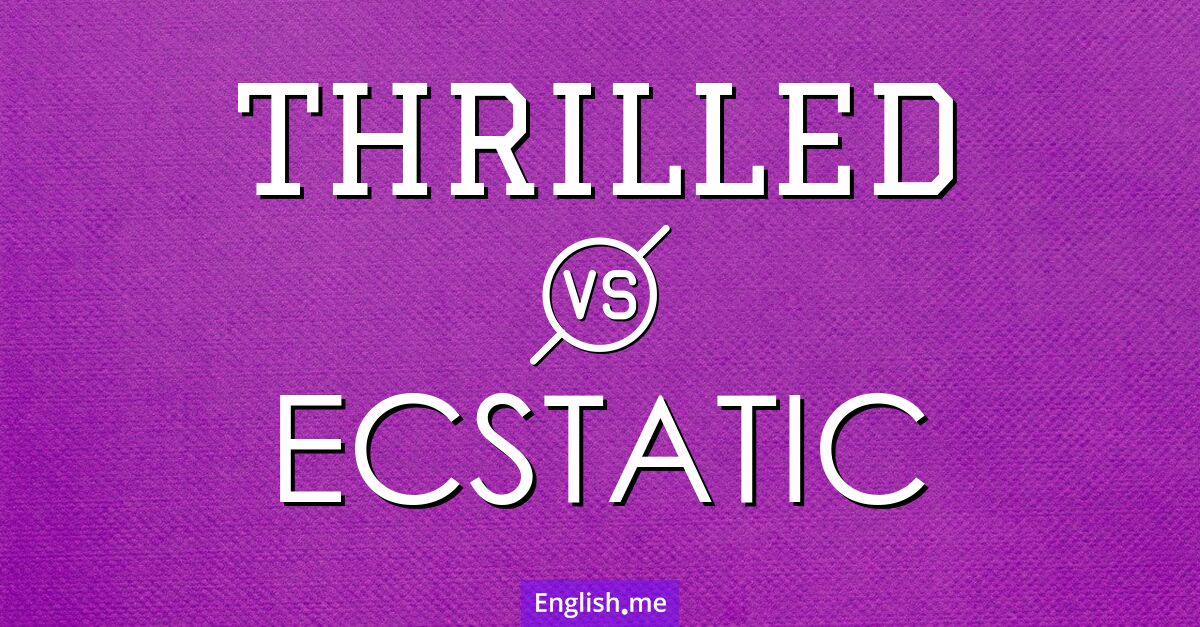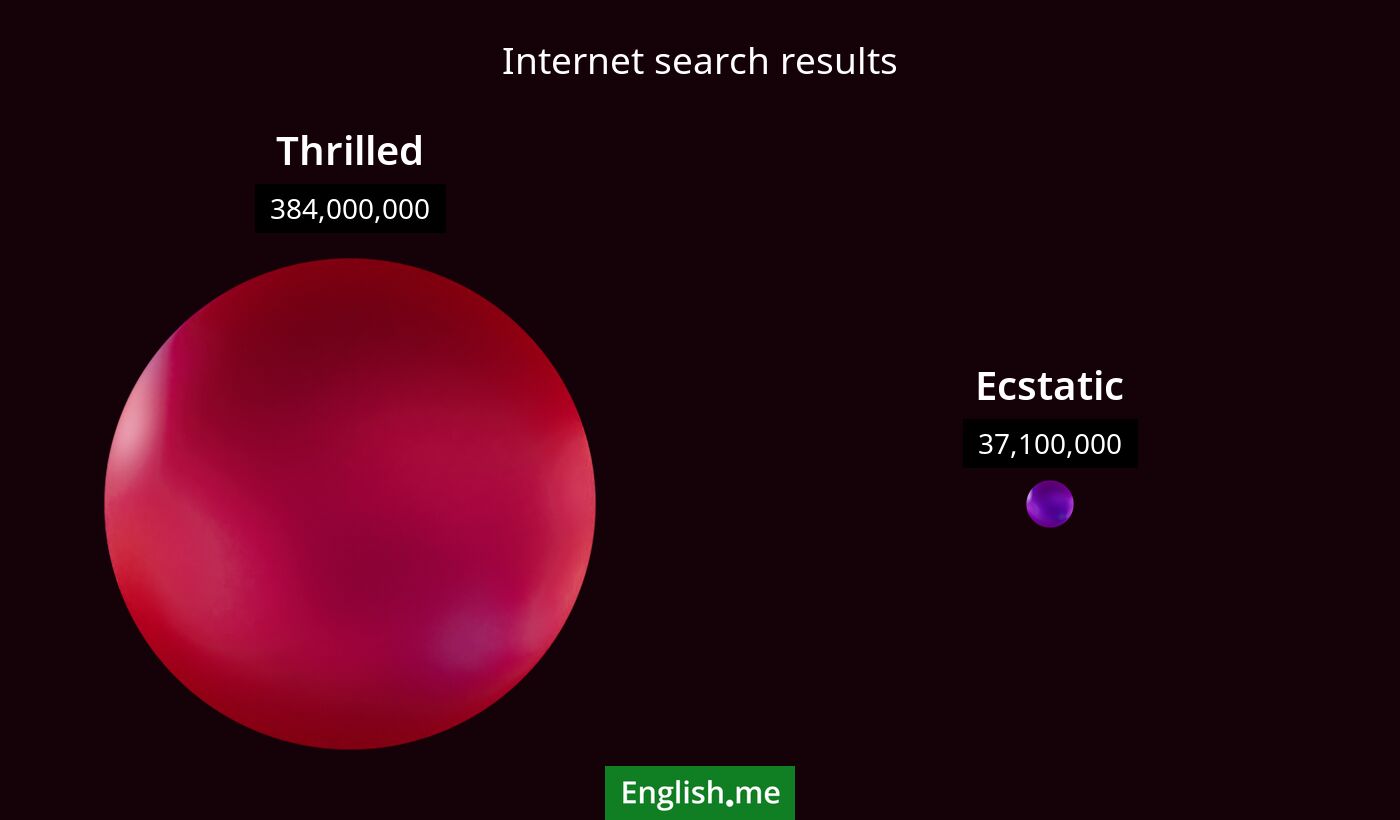Exploring the emotional spectrum: "thrilled" vs. "ecstatic"
Reviewed and edited by  Lloyd Cooper 07/11/2024, 06:16
Lloyd Cooper 07/11/2024, 06:16
English.me team member

 What is similar?
What is similar?
Both "thrilled" and "ecstatic" describe a state of great happiness or excitement. They are both adjectives used to express intense joy.
 What is different?
What is different?
"Thrilled" typically implies a strong feeling of excitement and pleasure, often in anticipation or as a result of a specific event. "Ecstatic" suggests an extreme state of happiness, often to the point of being overwhelming.
 Which one is more common?
Which one is more common?

 Examples of usage
Examples of usage
Thrilled- She was thrilled to receive the job offer.
- I am thrilled to announce my engagement.
- The children were thrilled about going to the amusement park.
- He was ecstatic when he found out he won the lottery.
- She was ecstatic at the news of her friend's recovery.
- The fans were ecstatic after their team won the championship.

 English
English español
español française
française italiano
italiano deutsche
deutsche 日本語
日本語 polski
polski česky
česky svenska
svenska Türkçe
Türkçe Nederlands
Nederlands